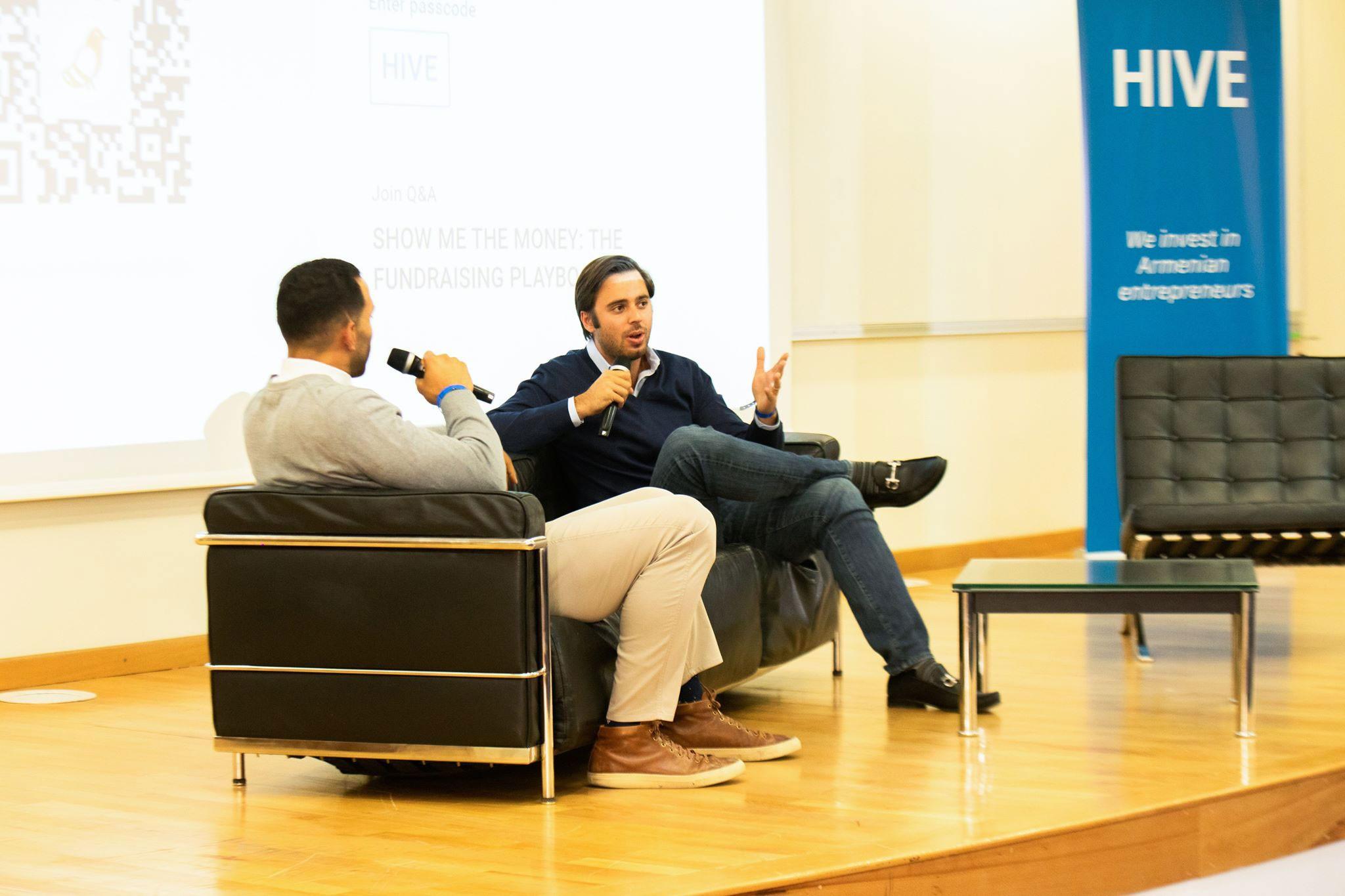
Investor-Startup Dialogue: Part 1
Mane Gevorgyan, Katrina Shakarian
Historically, it’s been investors or venture capitalists finding special projects — now called startups — to invest in for equity or a stake in ownership. Today, the playing field has changed. The world is more connected than ever before and people have easy access to each other through the internet and social media. Startups find investors, and vice versa, resulting in more and more game-changing ideas gaining support.
So, what are the main channels for finding investors? How accessible are they? What should you consider when making contact? Why should you be selective in saying “yes” or “no” to an investor? In the next series of articles, Hetq sat down with investors to get answers to these questions and more. The first article is based on interviews with John Melas-Kyriazi of Spark Capital and Ryan Nece of Next Play Capital, both of whom were in Armenia for HIVE Tech Summit organized by HIVE Ventures in October.
Ryan Nece is managing partner and one of two former National Football League athletes who founded Next Play Capital in 2015. Based in California, it funds tech-based companies in the sports industry. It specializes in fund of funds investing and often co-invests in companies with other venture capitals.
John Melas-Kyriazi is an investor at Spark Capital, an early and growth-stage venture capital firm that takes risks on exceptional founders and their products. With branches in Boston, San Francisco and New York City, its portfolio of companies spans industries — online platforms like Twitter and Wayfair, deep tech companies like Cruise, and B2B software companies like Slack and Trello.
Networking
Based on his experience, Ryan Nece suggests two ways of finding and communicating with investors — digitally on social media and in-person at industry conferences and summits. Social media has become a go-to information platform for investors. LinkedIn is an effective tool for finding email addresses and making initial contact, while Twitter is where prominent venture funds, investors and owners share best practices and topics of interest. Following angel investors and venture capitalists on Twitter is one way to gain insights into their investing habits. Intelligent commentary and retweeting can help you build a noticeable online presence.
Drafting an Email
When reaching out to an investor via email, Nece recommends writing a subject line that is both personal and professional. “It can be something like — ‘I know your business partner’ or ‘I went to school with a founder you invested with.’ It highlights a personal connection, but remains professional. They mention someone I trust or even admire, so they have better chances of getting my attention,” said Nece.
The Ask
Before asking an investor for money, why not ask for advice? “If somebody doesn’t want to give you advice, do you want that person as an investor anyway? Being able to ask for advice and start a dialogue is a really interesting way to approach it,” said Nece. When it comes to making “the ask,” Nece suggests cutting the noise and being granular. Investors are more likely to respond to requests that are specific and indicate why they’re the best person for the proposition.
Another way to initiate a conversation about funding is by sending an investor an article on a topic of mutual interest. The article can be a good segue to introducing your company and making a proposition.
Relationships
According to John Melas-Kyriazi of Spark Capital, trusted connections are the shortest ways of getting in touch with an investor — although he doesn't rule out the possibility of answering a well-crafted email from a founder he has no connection with. A good email requires time and research. While the subject line can vary depending on the content, it’s preferable that it be relevant to the investor’s interests or topics they’ve talked about publically.
For Melas-Kyriazi, startup founders finding investors and investors finding startups is a natural cycle. While startups usually find him through mutual connections, he recalls an instance when he reached out to a founder. He invited them for coffee and ended up investing in the company. Never say “no” to an opportunity without fully exploring it, he advised.
Geography
While Spark Capital is open to investing in startups beyond its geography, the situation can pose challenges such as not knowing enough about location and customers. “Why would we invest if we can’t give the right advice?” asked Melas-Kyriazi.
Not only does Spark Capital make monetary investments, but they also take seats on the boards of those companies. So, they pick companies they’re compatible with and can effectively help and support. “If there’s a startup, for instance in Armenia, building a product for a global audience and we actually understand what they are doing from a customer perspective, it's easier for us to feel comfortable investing,” said Melas-Kyriazi.
 Videos
Videos Photos
Photos






Write a comment